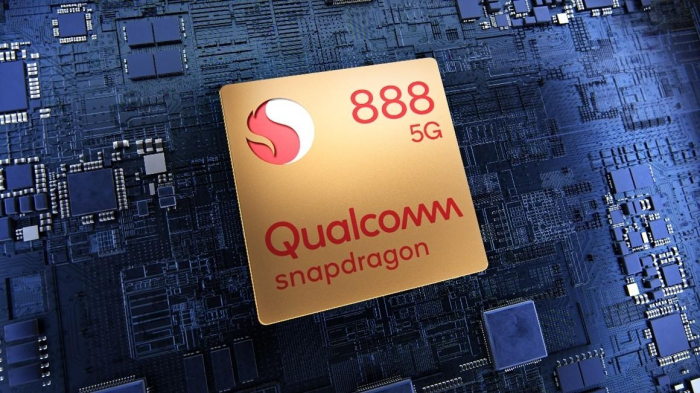Semiconductor shortages
Qualcomm chip shortage may squeeze global smartphone production
By Mar 08, 2021 (Gmt+09:00)
3
Min read
Most Read

The global semiconductor shortage that has hit the automotive industry is also making its impact on major smartphone makers around the world. ┬Ā
According to industry sources on Mar. 8, a number of smartphone manufacturers, including South KoreaŌĆÖs Samsung Electronics Co. and ChinaŌĆÖs Xiaomi, have discontinued sales of their mid- and low-price models in several markets due to a shortage of QualcommŌĆÖs highly sought after Snapdragon chips.
ŌĆ£Smartphone makers could be facing plant shutdowns just as in the auto industry. Some have already delisted lower price models from the market to use the remaining inventory of chips in their latest models,ŌĆØ commented a South Korean industry representative.
The current shortage is forcing phone makers to receive Qualcomm chips 7 to 8 months from the order date, according to market research firm IHS Markit. The firm analyzed that the lead time for the new orders ranges from 26 to 38 weeks, with its Snapdragon application processor (AP) chips taking 30 weeks and Bluetooth chips 33 weeks.
QualcommŌĆÖs incoming CEO Cristiano Amon also warned in a recent media interview that the chip shortage in the mobile industry is likely to continue throughout 2021.
Qualcomm is the worldŌĆÖs top mobile chip supplier with 30.8% market share last year and provides the industry with chips manufactured at semiconductor foundry firms such as Samsung and Taiwan Semiconductor Manufacturing Company (TSMC).
The supply of the companyŌĆÖs chips has shown a considerable gap to demand as the worldŌĆÖs leading foundries are operating at full load with one year lead time. The foundries have been facing an excess in demand due to the rush of new orders from different industries expecting an economic rebound this year with the launch of global vaccination programs.
RISING CONCERNS AROUND THE GLOBE ┬Ā┬Ā
Top level executives of the Chinese makers have expressed their concerns publicly as well.
ŌĆ£Chips are out of stock this year ŌĆō not just a shortage, but an extreme shortageŌĆØ, wrote Lu Weibing, the president of Xiaomi China, on his personal Weibo microblog.
A high-level executive of Realme, the worldŌĆÖs seventh-largest smartphone maker, also told a local media that the company ŌĆ£ran out of QualcommŌĆÖs AP chips, RF (radio frequency) chips and power semiconductors.ŌĆØ
Recent power outages in Texas have also forced SamsungŌĆÖs foundry plant in Austin to halt chip production for more than two weeks, putting extra pressure on global chip supply.
SamsungŌĆÖs Austin plant manufactures QualcommŌĆÖs AP chips, RF chips, power management integrated circuits (PMICs) as well as display driver integrated circuits (DDICs).
GROWING COMPETITION FUELED BY CHINA
The biggest factor behind the recent shortage is growing competition in the industry fueled by the so-called OVX ŌĆō the three Chinese companies Oppo, Vivo and Xiaomi ŌĆō that are rapidly filling the vacuum in the market created by US sanctions on Huawei, previously the second-largest maker in the world.
According to market research firm Counterpoint Research, Huawei saw a 21% decline in its smartphone shipments last year at 187.7 million devices, while Xiaomi saw a 17% rise to 145.8 million devices during the same period.
Likewise, the combined shipment figures of Oppo, Vivo and Realme ŌĆō the three companies under ChinaŌĆÖs BBK Group ŌĆō stood at 262.7 million devices, surpassing those of Samsung for the first time at 255.7 million devices.
Such shift in the market landscape created additional demand for Qualcomm chips, as the OVX companies do not have in-house facilities that can either design or manufacture their own chips, unlike Huawei and Samsung that have independently developed chips as well as their own production lines for chip manufacturing.
An industry expert remarked: ŌĆ£This foundry capacity shortage will likely continue for another year. If global production of smartphones is squeezed due to the chip shortage, it may have a long-term impact on the industry that was expecting a way out of the pandemic.ŌĆØ
Write to Jeong-su Hwang at hjs@hankyung.com
Daniel Cho edited this article.
More to Read
-
 DRAM supercycleSigns of upcoming DRAM boom cycle loom large amid price uptrend
DRAM supercycleSigns of upcoming DRAM boom cycle loom large amid price uptrendFeb 25, 2021 (Gmt+09:00)
3 Min read -
 Foundry ramp-upsSamsung Elec may advance start of leading-edge foundry line to July
Foundry ramp-upsSamsung Elec may advance start of leading-edge foundry line to JulyFeb 21, 2021 (Gmt+09:00)
3 Min read
Comment 0
LOG IN




